If you are lucky enough to have Scottish ancestry, you’ll find that the country has some of the best, if not the best, preserved genealogy records anywhere. And the most important records can be accessed online. This post is mainly aimed at the family historian who is new or relatively new to Scottish research and is a walk through of the main record sets and where to find them.
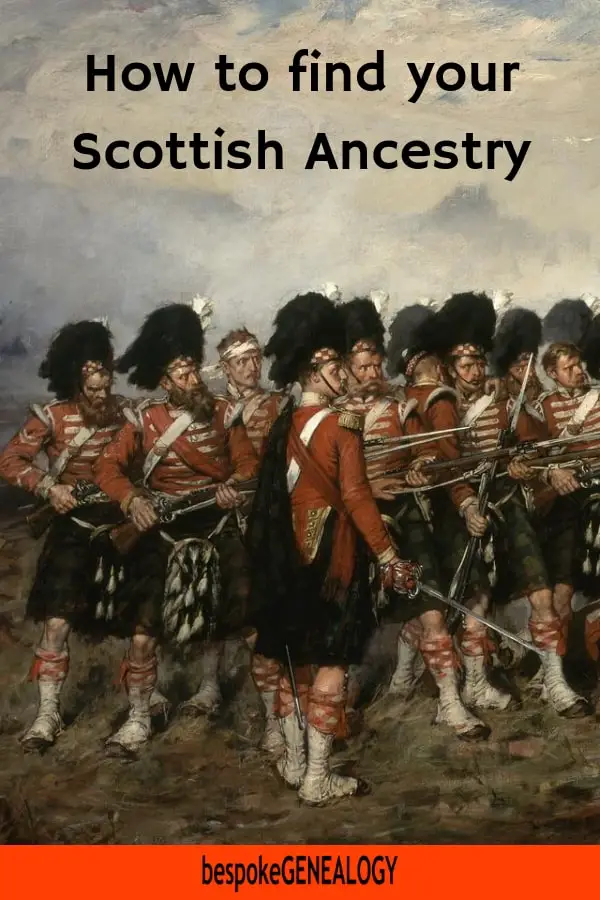
Although Scotland is (still) part of the United Kingdom, you won’t find as many key record sets on the subscription sites as you would for England and Wales. This is because the Scottish Government, through its archives, controls the distribution of these records through the Scotland’s People website.
Scotland’s People is the most important website you’ll use for Scottish research as here you’ll find statutory registers (civil registration of births, marriages and deaths), parish registers for the established and other churches, census returns as well as property, legal and other records.
For more information about Scotland’s People see this post.
Census Returns
As in England and Wales, Scotland has been undertaking a census in most decades since 1821. The census returns from 1841 record the names in households and are therefore of interest to family historians. Most of the returns survive and can be accessed online for the years 1841 to 1911. Due to the 100 year privacy rule, the 1911 census is the most recent that can currently be accessed. The 1921 census should be available in 2022.
The only place all of the 1841-1911 census records can be found online (images and transcriptions) is Scotland’s People . At the time of writing it costs 6 credits (GBP1.50) to download a census record on this site.
Findmypast and Ancestry have transcriptions (but no images) of the 1841 – 1901 Scottish censuses. These can be accessed as part of subscriptions to these sites.
The 1881 Scottish census transcriptions are free to access on Findmypast.
The free site Family Search has transcriptions of the 1841-1891 censuses for individual people. However, it is difficult to piece together complete households.
The free volunteer site FreeCen is aiming to transcribe all of the 1841-1891 censuses for Great Britain, including Scotland. Much work has been completed, so it is always checking this site to see if records for the county you are interested in are available.
For more information on British censuses see The Complete Guide to the British Census.
1939 Register
The 1939 Register was similar to a census and was taken on the eve of the Second World War so that identity cards could be issued. The registers for England and Wales can be accessed on Findmypast and Ancestry. Unfortunately this is not the case for Scotland.
However, you can obtain an abstract from the register for a particular address which will show the members of a household who were born 100 years or more ago. You’ll need to go to the National Records of Scotland website and download a form (NR 1). Once they receive the completed form and a payment, the NRS will send you the extract. More details and a link to the form can be found on this NRS page.
Civil Registration
Civil registration of births, marriages and deaths was introduced in 1855 in Scotland, which was 12 years after England and Wales. However the records north of the border contain more information useful to the genealogist, such as parents date and place of marriage on a birth record.
Historic civil registration or statutory records can be accessed and downloaded from Scotland’s People. Downloading a record costs 6 credits (GBP1.50 at time of writing). Birth records older than 100 years, marriage records over 75 years old and death records more than 50 years old can be downloaded.
More information about these records can be found here.
Parish Records
Scotland’s People holds digitized copies of parish records for the whole of Scotland. The cost is the same as for statutory records (6 credits). Registers from the established Church of Scotland, the Roman Catholic Church as well as other non-conformist churches can be downloaded. A useful guide to church registers can be found on the site.
Indexes to Births and Baptisms, 1564-1950 and Marriages, 1561-1910 can be found for free on Family Search. Coverage is patchy and not complete. This site also holds Church Records and Kirk Session Records, 1658-1919. These are records of Church of Scotland synods, presbyteries and kirk sessions containing registers of baptisms, marriages, and burials. These were originally filmed at the National Archives of Scotland (CH2 series). All of these records are transcriptions.
Findmypast has the same baptism and marriage records as Family Search (above). In addition this site has the following collections of transcriptions:
- Scotland, Parish Births & Baptisms 1564-1929 (non conformist church records transcribed from records held by the National Records of Scotland).
- Scotland Roman Catholic Parish Baptisms
- Scotland Roman Catholic Parish Burials
- Scotland Roman Catholic Parish Marriages
Ancestry also has the Family Search parish records transcriptions.
Wills and Testaments
Scotland’s People holds digital copies of more than 600,000 wills and testament covering the years from 1513 to 1925. These records can contain a mass of useful genealogical information relating to the deceased as well as to the beneficiaries. More information about these records can be found in this Scotland’s People guide.
Tax Records
Valuation Rolls which were property taxes can be found on Scotland’s People with records dating from 1855. These records list the property owner and tenant as well as rental information. They can be useful for finding your ancestors between census years. See this Valuation Rolls guide for more information.
Post Office Directories
The National Library of Scotland has a collection of over 700 digitized Post Office directories available to download for free covering much of Scotland. They date from 1773 to 1911.
Maps
I previously wrote about the National Library of Scotland’s free online digital UK map collection here. The earliest Scottish maps date from the second half of the sixteenth century, and there are examples from most decades up until the early 1900s.
Archives
If you are planning to visit Scotland, check out my Scottish Archive Guide which has links to all the county archives and family history societies in Scotland.
Some other useful websites can be found on 15 Useful Free Scottish Genealogy Resources.
Recommended Scottish Genealogy Books
If you fancy some further reading on Scottish genealogy, I recommend these books:
Tracing Your Scottish Ancestors: A Guide for Family Historians
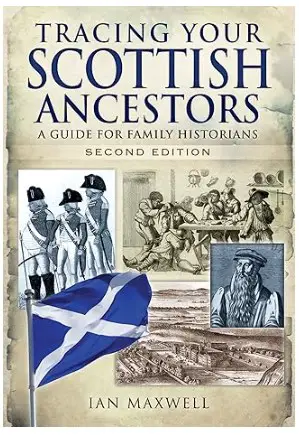
I really like the way this book was written. The author, Ian Maxwell, has split it into two; the first half of the book is a great overview of the social history of Scotland. This is really useful to read before delving into the main record sets of Scottish genealogy in the second half.
Click here to see it on Amazon
Tracing Your Scottish Ancestors: The Official Guide
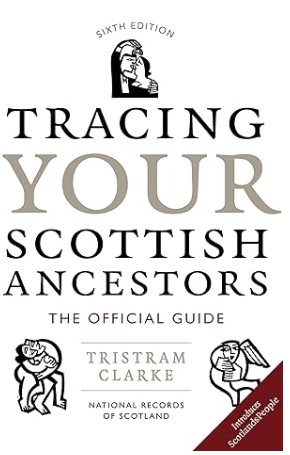
This book has been produced by the National Records of Scotland and is really a detailed companion guide to Scotland’s People and will help you get the most from the website.
Click here to see it on Amazon
Your Scottish-American Ancestry
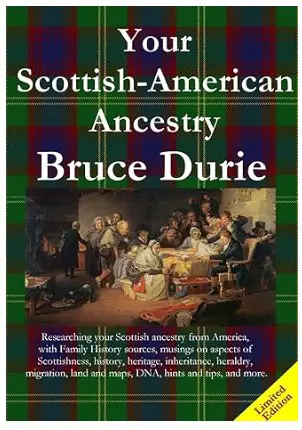
This book is obviously aimed at North Americans with Scottish ancestry. Written by the academic, Bruce Durie, it will help the family historian research Scotland from America.
Click here to see it on Amazon
Happy researching!
Please pin a pin to Pinterest:

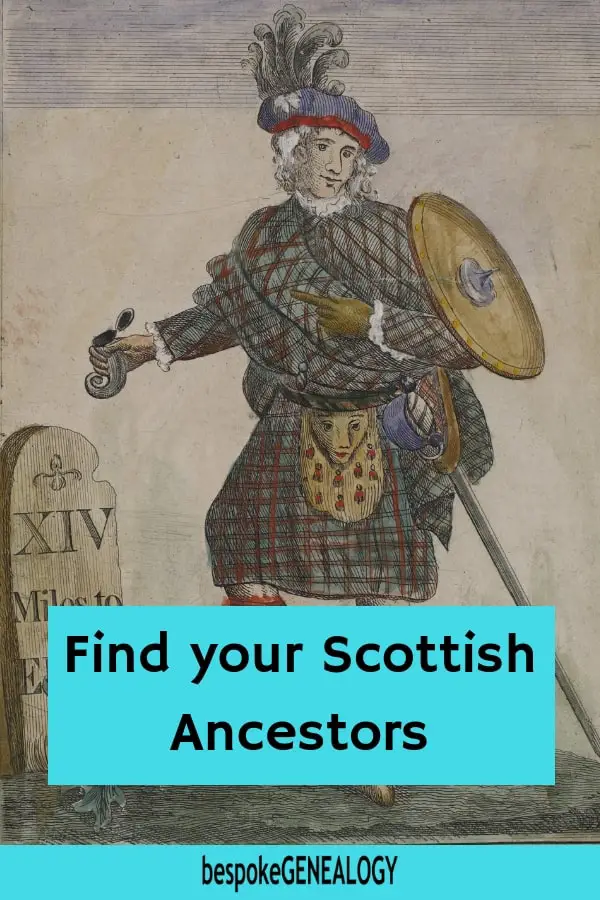
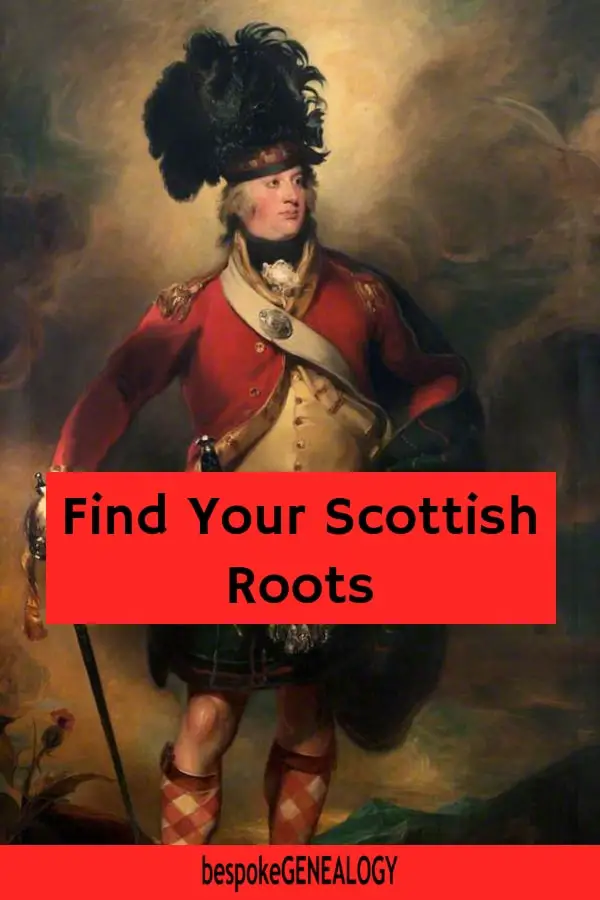
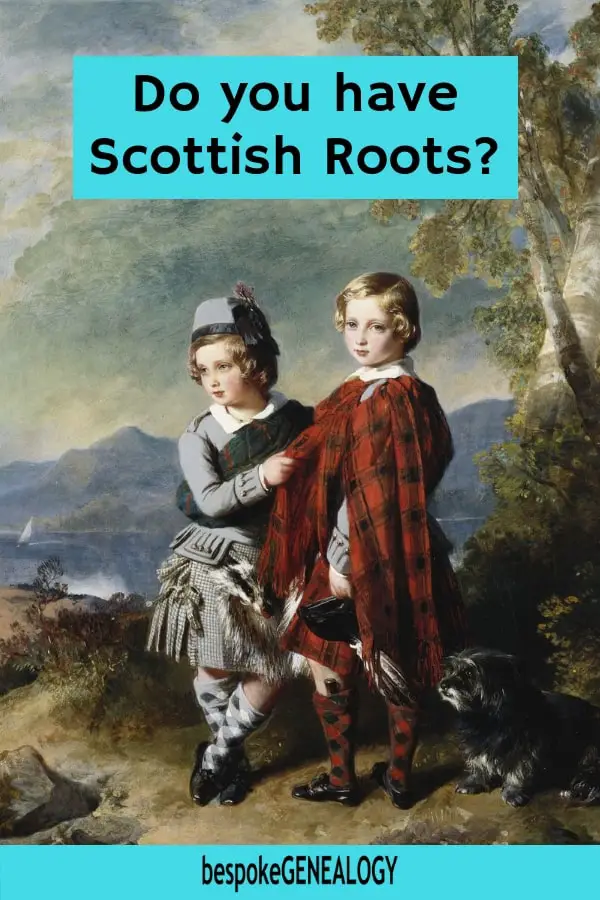
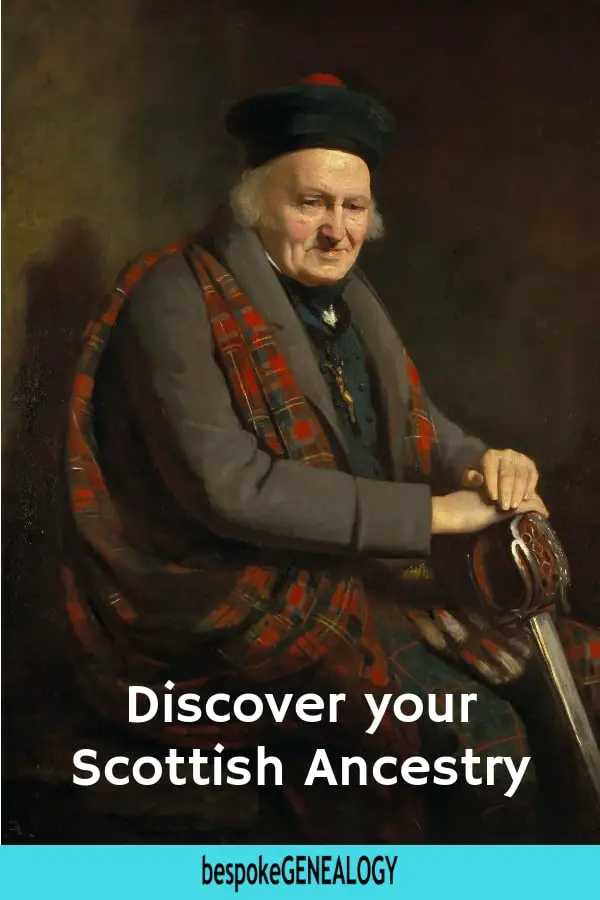
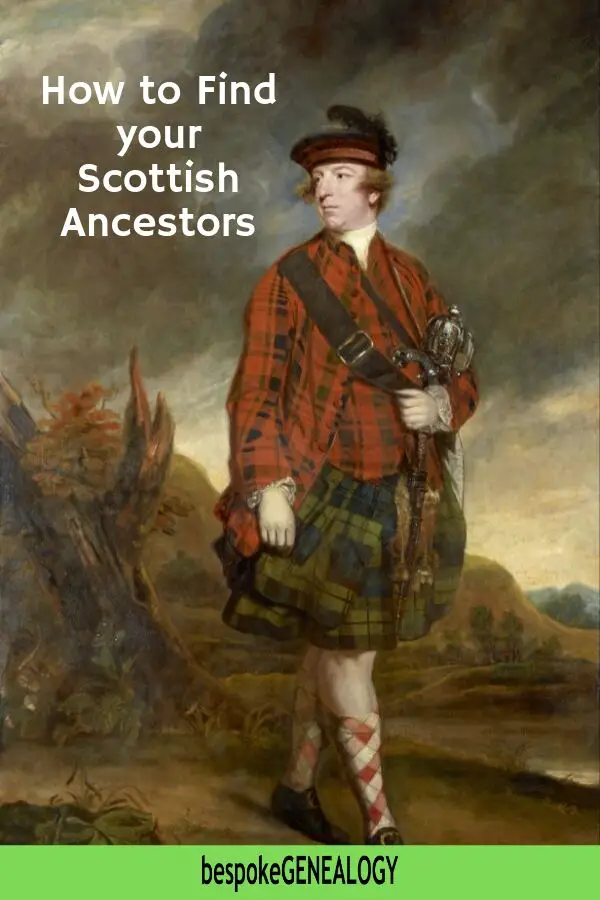
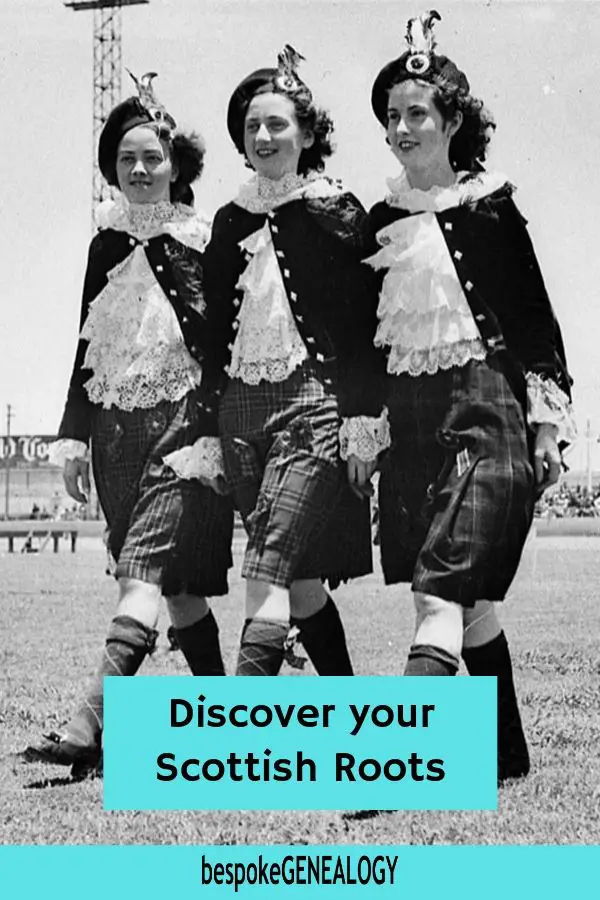
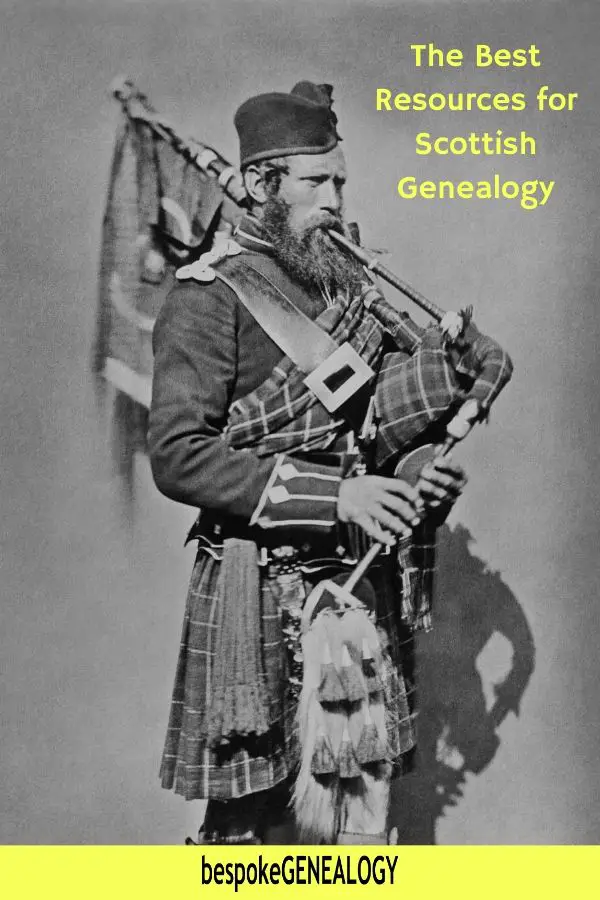
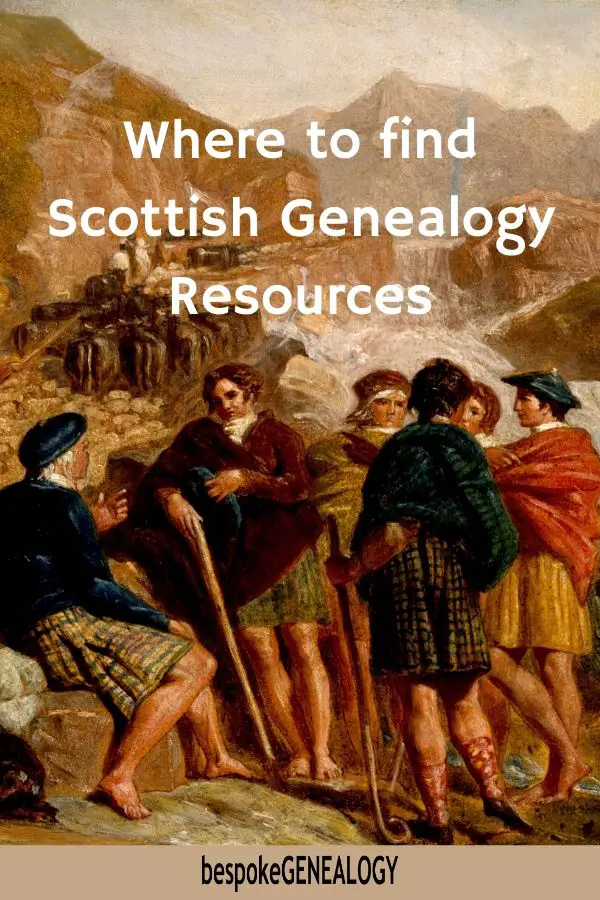
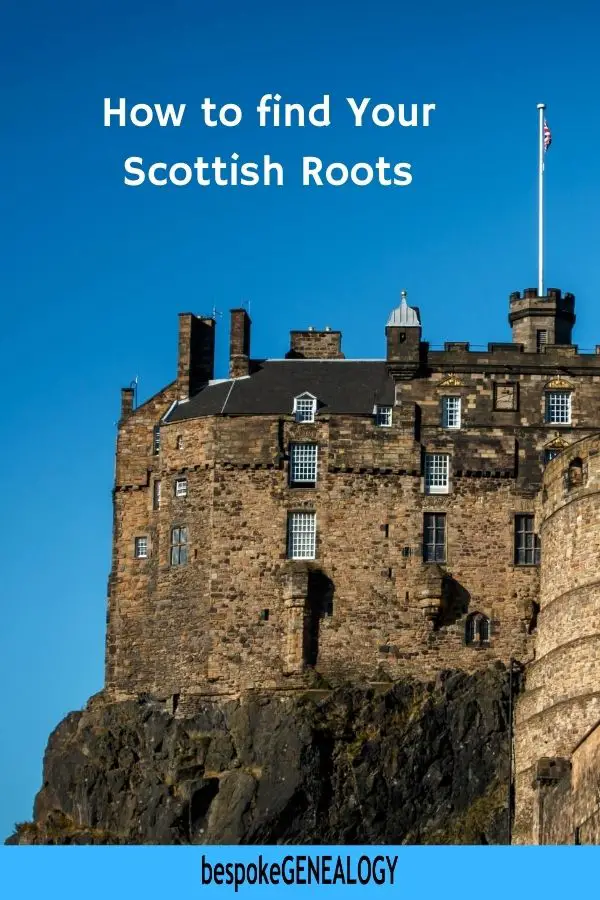
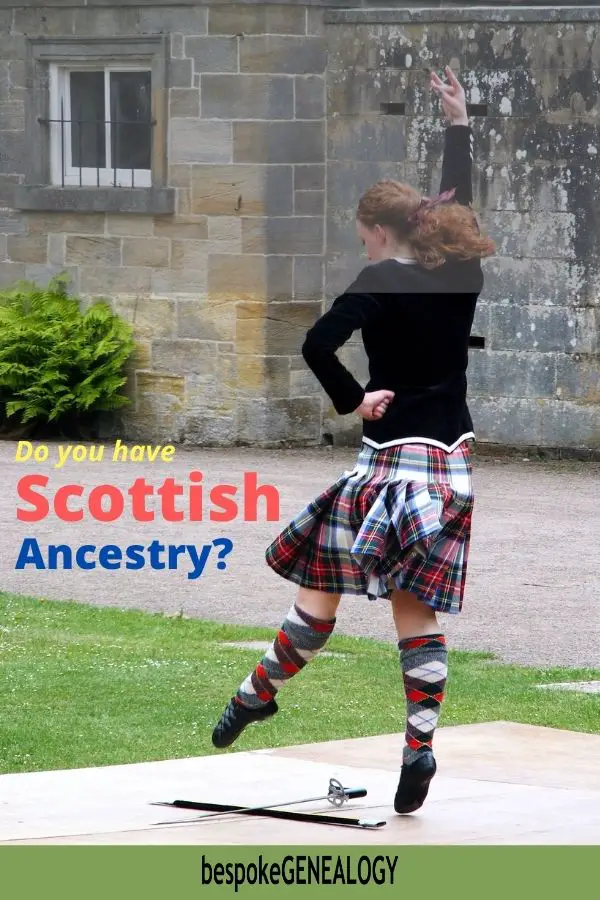
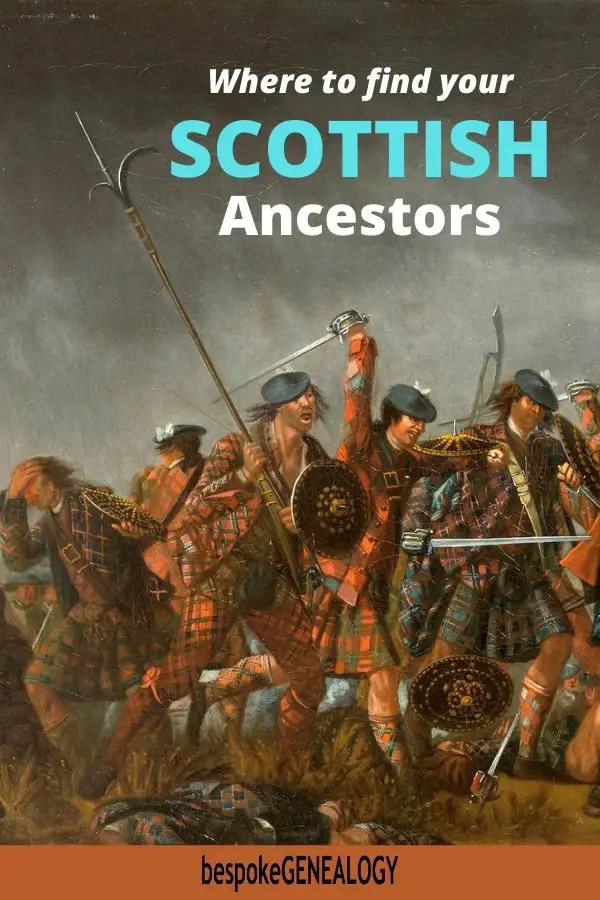
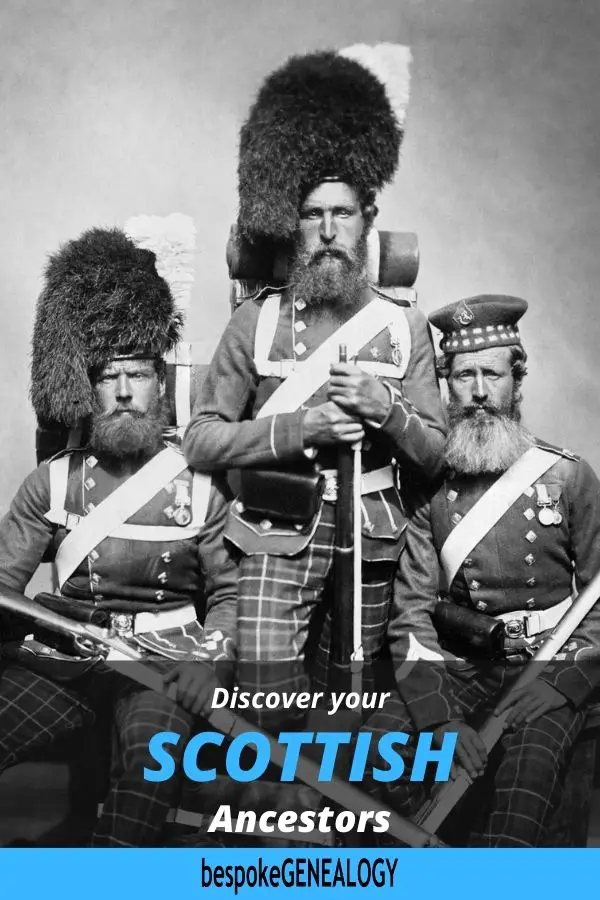
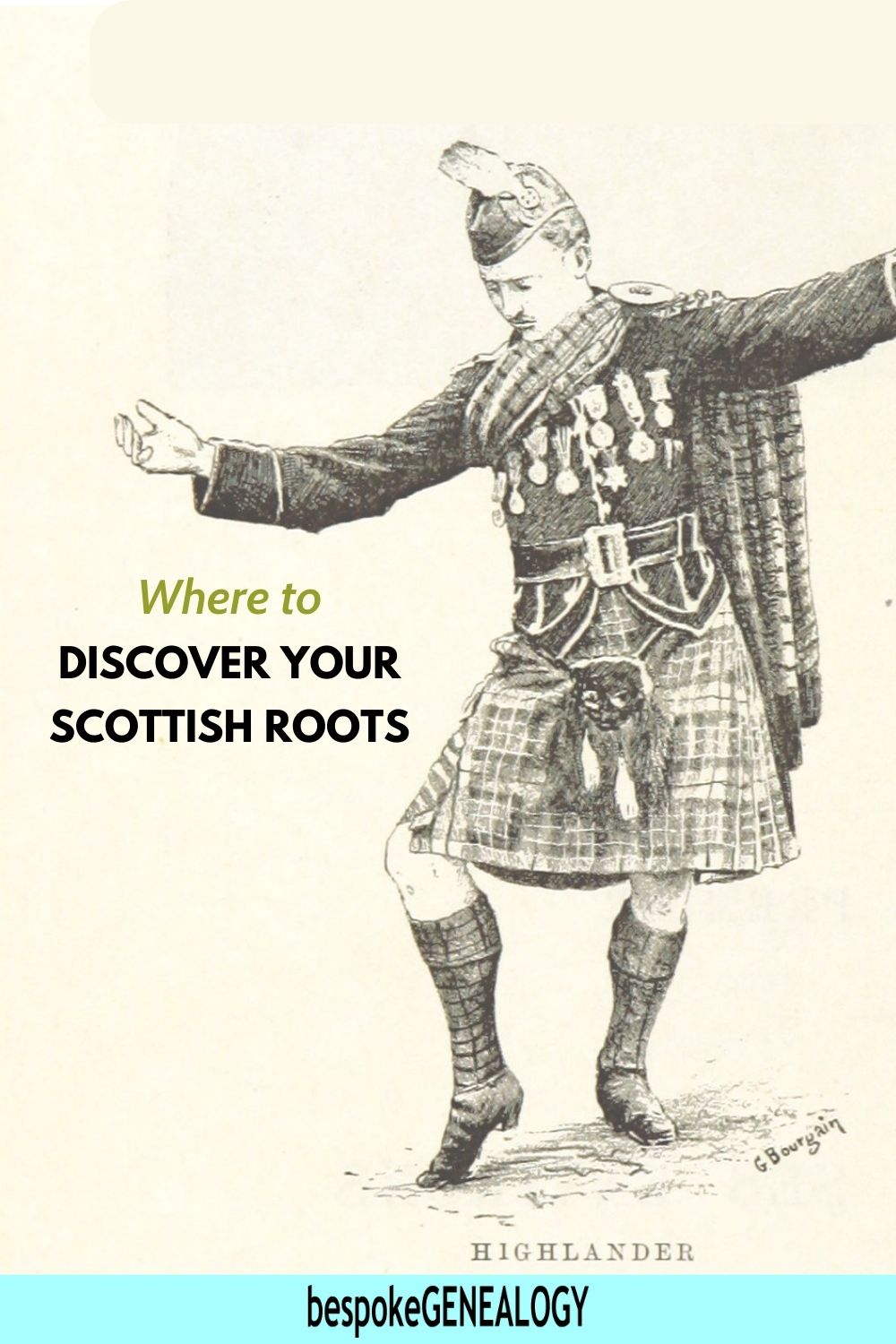

Such a wealth of information available here, thank you so much for sharing all your hard work.
You are very welcome Janet!
Thank you. I live in Barrie. Our ancestry dates back to the 1700s from Scotland. Will have a project now in January and February. Family Babcock, my dad’s (John Duffin Babcock) side came to reside in Odessa Ontario. Looking forward to the research. Besides I have an affinity to all things “Outlander” by Diana Gabaldon.
Thanks Wendy. Good luck with your research!
I have Scottish ancestry but am having a great deal of trouble finding my connections. My ancestor came to the US with the Scottish to fight. I believe it was with the (Black Guard) 42nd regiment but I do not have a first name, only his name of Stewart. Is there a source to find the Stewart’s who were part of this regiment then?
Hi Sherry,
I believe you mean the Black Watch. The problem is that Stewart is a very common name in Scotland, so there will likely be several soldiers with that surname serving at the time you’re interested in. Anyway, you can find some useful links on the Black Watch museum website here: https://theblackwatch.co.uk/research/ . Surviving records are kept at the National Archives in London: https://discovery.nationalarchives.gov.uk/results/r?_q=42nd+%28Royal+Highland%29+regiment+of+Foot&_sd=&_ed=&_hb= . You would need to visit in person or employ a local researcher to access the records.
Good luck!
Hi I just found out a few years ago that I have Scottish blood. unfortunately my real father (Scottish side) is unknown to me and so is his name. Are there any blood tests I can do to find ancestry in Scotland? I plan on moving there with my family within a few years.
Hi Cameron,
The Findmypast / Living DNA test has a greater proportion of British citizens (including Scottish) on it’s database than the US companies: https://www.findmypast.co.uk/page/ancestry-dna-testing . You can then upload your results to GEDMatch to increase your chances of getting matches: https://www.gedmatch.com/ .
However, the Ancestry DNA database is by far the largest, so you may have a better chance of getting matches on that site. Even though there is a high proportion of North Americans in the database, many of them will be of Scottish descent. And you can still upload results to GEDmatch. https://www.ancestry.com/
Good luck!